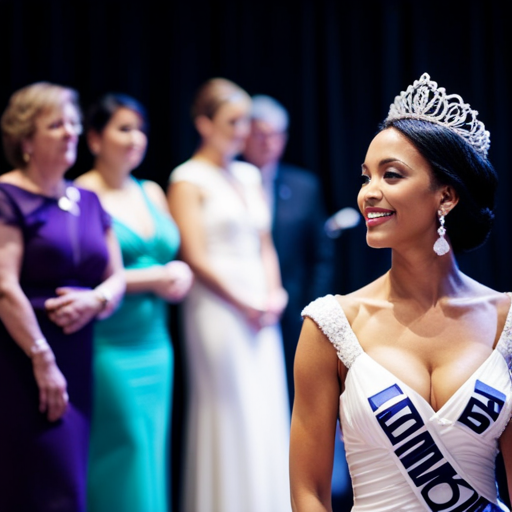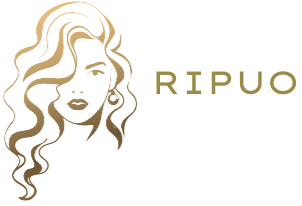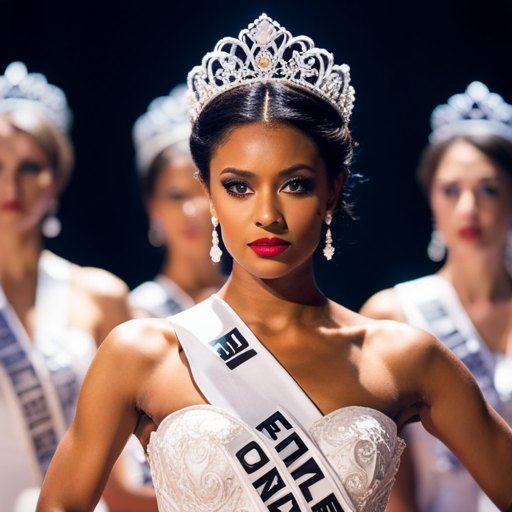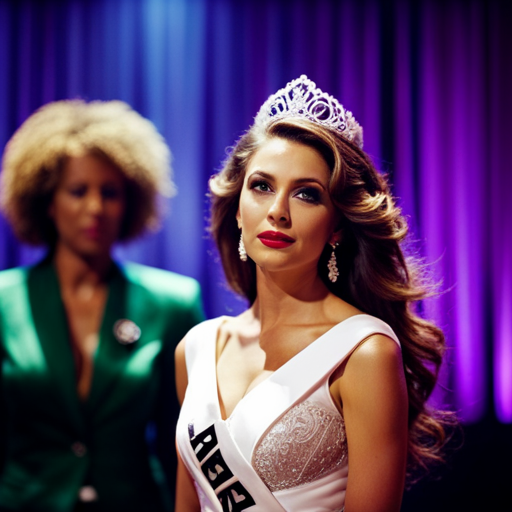Tailoring Your Message for Different Pageant Audiences

Crafting the perfect message for different pageant audiences is like stitching a bespoke gown – it requires precision, attention to detail, and an understanding of the unique preferences of each audience segment.
In the world of pageantry, effective communication is the key to success. This article explores the art of tailoring your message to resonate with judges, potential sponsors, contestants, the general public, media, and pageant organizers, ensuring that your message shines brightly in every spotlight.
Understanding Judges’ Expectations
Understanding judges’ expectations is crucial for pageant contestants aiming to make a lasting impression and excel in the competition. Audience perception plays a vital role in pageants, as judges often consider how contestants are perceived by the audience. It is important for contestants to understand that judges’ criteria are not only based on external appearance but also on how well they connect with the audience.
Judges expect contestants to exude confidence, authenticity, and grace while on stage. They look for individuals who can engage the audience and leave a memorable impact. Additionally, judges assess how well contestants articulate their thoughts, as effective communication is key to successfully connecting with the audience.
Understanding the judging criteria is essential for contestants to tailor their performances effectively. Criteria such as stage presence, personality, poise, and overall performance are carefully evaluated. Therefore, contestants must demonstrate a deep understanding of what judges are looking for and adapt their presentations to meet these expectations. By aligning with judges’ expectations, contestants can enhance their chances of standing out and leaving a positive impression on the judging panel.
Connecting With Potential Sponsors
Successfully connecting with potential sponsors is a vital aspect for pageant contestants aiming to secure support and financial backing for their endeavors. Building strong sponsor relations requires effective networking and pitch techniques. Contestants must develop and implement innovative marketing strategies to attract sponsors and demonstrate the value they can offer in return. Here’s a table summarizing key strategies for connecting with potential sponsors:
| Sponsor Relations | Marketing Strategies | Networking |
|---|---|---|
| Build rapport and trust with potential sponsors | Develop a compelling and targeted sponsorship proposal | Attend industry events and conferences |
| Communicate the benefits of sponsoring the pageant contestant | Utilize social media and digital platforms for sponsor outreach | Connect with professionals in related fields |
| Maintain open and transparent communication with sponsors | Leverage the contestant’s unique selling points to create sponsorship opportunities | Engage in one-on-one meetings with potential sponsors |
Engaging the General Public
To engage the general public effectively, pageant contestants must craft messages that resonate with diverse audiences and spark genuine interest in their platform and advocacy. Engaging the general public requires a strategic approach to public relations, leveraging the power of social media, and building a strong personal and platform branding.
In the realm of public relations, pageant contestants should actively seek opportunities to connect with the public through various channels. This may include participating in community events, speaking engagements, and media interviews. By doing so, contestants can establish a direct and personal connection with the public, allowing them to convey their messages authentically and build rapport with different audience segments.
Additionally, an effective social media strategy is crucial for engaging the general public. Pageant contestants should leverage platforms such as Instagram, Twitter, and Facebook to share their journey, advocacy efforts, and personal stories. By consistently creating compelling and relatable content, contestants can capture the attention of a wider audience and cultivate a loyal following.
Furthermore, crafting a strong personal brand and platform branding is essential for leaving a lasting impression on the general public. This involves defining a unique identity, values, and messaging that align with the contestant’s advocacy. By presenting a cohesive and compelling brand image, contestants can effectively engage the general public and leave a positive impact on their audience.
Tailoring Your Message for Contestants
Crafting tailored messages for fellow pageant contestants involves actively engaging in dialogue and exchanging insights to foster mutual understanding and support. It requires a personalized approach and effective contestant communication to build strong connections and create a positive and supportive environment.
Here are four essential elements to consider when tailoring messages for contestants:
-
Empathy and Understanding: Demonstrating empathy and understanding towards fellow contestants’ experiences and challenges can foster a sense of camaraderie and support within the pageant community.
-
Encouragement and Motivation: Providing words of encouragement and motivation tailored to each contestant’s journey can empower and uplift their spirits, promoting a positive and inclusive atmosphere.
-
Open and Honest Communication: Emphasizing open and honest communication allows for genuine interactions and the exchange of valuable insights, contributing to a supportive and collaborative pageant experience.
-
Respectful and Inclusive Language: Utilizing respectful and inclusive language when communicating with fellow contestants promotes a welcoming and harmonious environment, where everyone feels valued and respected.
Tailoring messages for contestants involves more than just delivering information; it requires creating a space for mutual encouragement, understanding, and growth.
Transitioning into the subsequent section about ‘adapting to media and press’, the same level of consideration and tailored communication is essential when engaging with external audiences.
Adapting to Media and Press
Navigating media and press engagements requires a strategic approach to effectively convey the pageant’s message and values. Building strong media relationships is essential for positive press coverage and public perception. Pageant representatives should proactively engage with various media outlets to ensure that the organization’s message is accurately portrayed. This involves establishing open lines of communication, providing timely and newsworthy updates, and offering exclusive access to relevant events and personalities within the pageant world.
Press strategies play a crucial role in shaping the narrative surrounding the pageant. By crafting compelling press releases, organizing press conferences, and facilitating interviews with key figures, pageant organizers can control the information being disseminated to the public. It is important to tailor the messaging to suit different media platforms, ensuring that the content is relevant and appealing to each specific audience.
Additionally, maintaining transparency and authenticity in all media interactions helps to build trust and credibility with the press and the public.
Ultimately, adapting to media and press requires a proactive and strategic approach to effectively convey the pageant’s values and key messages, while also managing the public image of the organization.
Communicating With Pageant Organizers
Engaging with pageant organizers requires clear and effective communication to ensure alignment with the organization’s goals and objectives. When communicating with pageant organizers, it is crucial to adhere to event etiquette and maintain a high level of professional communication. Here are four key points to consider when engaging with pageant organizers:
-
Clarity and Conciseness: Communicate your needs, inquiries, or proposals with clarity and conciseness. Pageant organizers are often busy individuals, so it is important to respect their time by being clear and to the point in your communication.
-
Respectful Tone: Maintain a respectful and courteous tone in all forms of communication, whether written or verbal. Professionalism and politeness go a long way in fostering a positive relationship with pageant organizers.
-
Prompt Responsiveness: Respond promptly to any communication from the pageant organizers. This demonstrates your commitment and respect for their time and efforts in organizing the event.
-
Adherence to Guidelines: Familiarize yourself with the event guidelines and follow them diligently. Adhering to the established protocols and procedures reflects your professionalism and respect for the organization and its standards.
Frequently Asked Questions
How Can I Effectively Use Social Media to Promote Myself to Potential Sponsors?
To effectively promote yourself to potential sponsors via social media, cultivate a strong online presence by showcasing your achievements, personality, and community involvement. Engage with your audience, share compelling content, and demonstrate the value you can offer to sponsors.
What Are Some Strategies for Connecting With a Diverse Audience When Engaging the General Public?
When engaging the general public, it’s essential to connect with a diverse audience through cultural sensitivity and media adaptation. Strategies include understanding various demographics, utilizing inclusive language, and leveraging different communication platforms to ensure effective public engagement.
How Can I Tailor My Message to Resonate With Contestants From Different Cultural Backgrounds?
Cultural sensitivity is paramount when engaging diverse audiences. To resonate with contestants from different cultural backgrounds, tailor your message by acknowledging their unique traditions and values. This fosters audience engagement and demonstrates respect for their heritage.
What Are Some Tips for Adapting My Message for Different Types of Media Outlets?
Adapting messaging for different media outlets involves understanding their unique audience and tailoring content to resonate. Digital branding ensures consistency across platforms, while sponsorship engagement can enhance visibility. Consider tone, format, and messaging style for optimal impact.
How Can I Effectively Communicate My Needs and Goals to Pageant Organizers in a Way That Is Professional and Persuasive?
When effectively communicating needs and goals to pageant organizers, utilizing networking strategies and persuasive communication is crucial. Professional branding and targeted outreach can enhance the impact, demonstrating a strong, compelling message.
Conclusion
In the world of pageantry, it’s important to tailor your message to different audiences. Just like a skilled tailor customizes a garment to fit each individual, a successful pageant contestant must adjust their communication to meet the expectations of judges, sponsors, the public, fellow contestants, media, and organizers.
By understanding and adapting to the unique needs of each audience, contestants can increase their chances of success and make a lasting impression.




